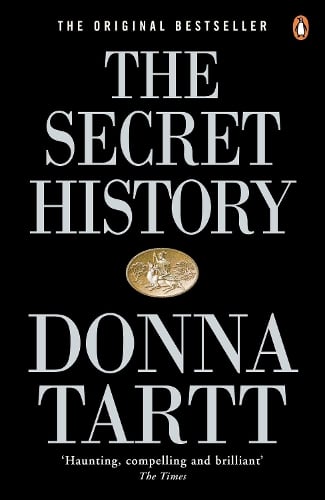On the Jellicoe Road was the first Melina Marchetta book I encountered, though not the first one I read. My Auntie Carol bought it for me on a trip to Australia before my first year of university, and I proceeded to leave it on a shelf until a different Australian friend bought me Saving Francesca and prompted me to revisit a book I hadn’t thought about in years.
I love reading about the kids in the eighties, even though I can’t make head or tail of the story. Hannah hasn’t structured it properly yet. I’ve got so used to reading it out of sequence but one day I’d like to put it in order without worrying that she’ll turn up and catch me with it.
On the Jellicoe Road, Melina Marchetta
On a first read, On the Jellicoe Road’s double narrative sweeps the reader along in exactly the same way Hannah’s manuscript carries Taylor. That it’s not immediately easy to make head or tail of the story doesn’t make the ride any less enjoyable. Even on a second read, it’s fun for the reader to piece together what they remember of the links between the two stories. It’s particularly rewarding to see the adults those kids in the eighties have become; Melina Marchetta gets to show off friendships that have actually lasted for decades, as well as ones which feel like they will.
Taylor Markham is as good an angsty teen girl protagonist as A Deadly Education’s Galadriel, and the cast of classmates and schoolmates that surround her are just as much of a found family, if not moreso. Like Galadriel, Taylor makes herself difficult to like at times, which only makes her character development more rewarding. Taylor’s relationship and love interest are a much more integral part of the story than Francesca’s were, which is why On the Jellicoe Road gets that extra half a star!
“Just say you get expelled?”
On the Jellicoe Road, Melina Marchetta
“Then so be it. I still would have driven for seven hours and ordered you hot chocolate and white toast and marmalade.”
“And you don’t call that romantic? God, you’ve got a lot to learn.”
On the Jellicoe Road has as much character development as any of Melina Marchetta’s other novels and, on top of that, it also has more plot than most of the other Young Adult titles. The ending is big and brilliant and memorable. Even reading the book for a third time drives the reader towards it with eager anticipation. It’s not quite fair to compare On the Jellicoe Road with Finnikin of the Rock, because both stories are doing very different things, while sharing many Melina Marchetta’s trademark positives.
As it turns out, my Auntie Carol has spot-on taste, because On the Jellicoe Road is my favourite of the Melina Marchetta books I’ve read.








